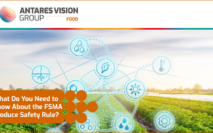The DSCSA VRS deadline is one of the most important milestones the pharmaceutical industry needs to meet. The Drug Quality and Security Act (DQSA) was enacted by Congress on November 27, 2013, in doing so amending the Federal Food, Drug, and Cosmetic Act to grant the Food and Drug Administration more authority to regulate and monitor the manufacturing of compounded drugs.
Title II of the bill, the Drug Supply Chain Security Act (DSCSA) is designed to establish requirements to facilitate the tracing of prescription drug products through the pharmaceutical supply distribution chain. It outlines steps to build an electronic, interoperable system to identify and trace certain prescription drugs as they are distributed. This will enhance the FDA’s ability to help protect consumers from exposure to drugs that may be counterfeit, stolen, contaminated, or otherwise harmful. The system will also improve detection and removal of potentially dangerous drugs from the drug supply chain to protect consumers.
Adopting a phased approach, there are two key deadlines for different stakeholders: November 26th 2018 is the widely acknowledged deadline for pharmaceutical manufacturers and repackagers; however, given that the FDA has already pushed this deadline back once by a year (from November 2017), the second deadline is unlikely to be met with similar lenience.
On November 27th 2019, the DSCSA VRS deadline is enacted. The wholesale industries must be compliant and only accept products that contain a serial number or product identifier, and they must verify this product identifier before they can go on to resell these goods. They must also be able to complete a validatable returns process.
To complete this process in specific regard to returned products that are saleable, the Verification Router Service (VRS) initiative was highlighted by the Healthcare Distribution Alliance (HDA) in its efforts to lead the industry in implementing the act. Essentially the VRS community consists of a third-party routing service, comprising requestors, responders, VRS providers, and a governance body to help manufacturers and distributors work together.
Under the proposals, the responders – ie. the manufacturers – are responsible for providing repository connectivity information to the VRS and providing appropriate responses to the requesters’ (ie. the wholesale distributors) verification requests by matching the product identifier received from the requester with the product identifier in their repositories.
This level of collaborations requires tools for manufacturers and distributors need to work together. And these tools require testing – in minutiae.
Today, various solution providers, including rfxcel are in the process of providing a VRS. By the end of Q2 2018, industry testing is expected to start. The industry testing will consist of two rounds of testing, where there will be updates and modifications to the VRS specification to accommodate learning’s from the first test. Final revisions and refinements of the VRS will go in place with the final report published by the end of Q4 2018. Therefore, the VRS is expected to be available in early 2019, in readiness for the November deadline.
Lessons learned
However, as mentioned, it’s unlikely that the FDA will be lenient with this second deadline. It is therefore important to be aware that the duration of the testing depends on a lot of different things. It is going to be dependent on the readiness of your trading partners to start testing, and be determined by the quality of the data you received. You will need to expect some problems and be able to account for that within your schedule.
Analysing the recent HDA meeting back in February, we have put together our top tips to ensure you meet the upcoming DSCSA deadline:
- Start talking with your providers, NOW! If you haven’t started implementing solutions yet or looking into your options, this is the perfect time to start.
- If you are selecting vendors, make sure you understand the level of service provided by these providers. Everyone has a different way of managing the implementation process, so it’s not all the same.
- Understand the total cost of ownership or the total cost of implementation. Make sure you have resources in the budget for that so you’re not surprised when the project starts.
- We recommend that engage your trading partners to mutually understand the impact of your plans. This is probably the most important phase that you’ll need to go through. Your trade partners have different schedules, they may have different commitments to other customers that they are exchanging information with. So as part of this, make sure you understand the proximity exchange and make sure you reach out to your key suppliers in time.
- Finally, the HDA does require continued testing implementation regarding serialized items. Make sure that you schedule ample time to test the implementation. Run through the proper test cases with your trade partners as part of the on-boarding process.
To learn more about the DSCSA VRS deadline and rfxcel’s VRS pilot project please contact us.
Legal Note *We are very familiar with the DSCSA requirements and the DSCSA implementation we are not familiar specific trading partners or contracts or business requirements. As a result we do recommend that you have them all reviewed by your legal team to make sure that DSCSA law and DSCSA VRS deadline might apply for your specific situation.






